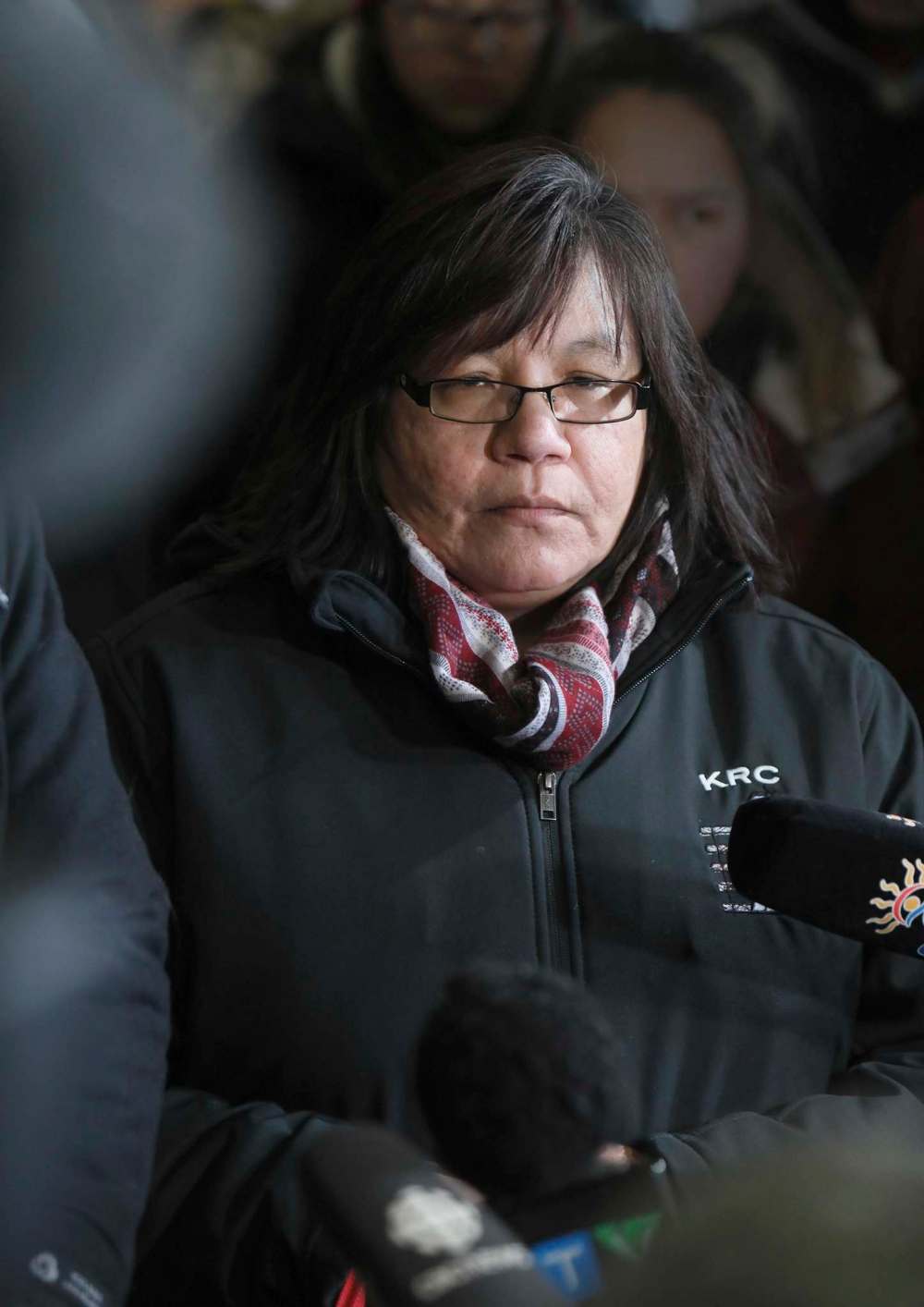Ottawa, First Nations agree to $8-B settlement on drinking water issues
Advertisement
Read this article for free:
or
Already have an account? Log in here »
To continue reading, please subscribe:
Monthly Digital Subscription
$19 $0 for the first 4 weeks*
- Enjoy unlimited reading on winnipegfreepress.com
- Read the E-Edition, our digital replica newspaper
- Access News Break, our award-winning app
- Play interactive puzzles
*No charge for 4 weeks then billed as $19 every four weeks (new subscribers and qualified returning subscribers only). Cancel anytime.
Read unlimited articles for free today:
or
Already have an account? Log in here »
Hey there, time traveller!
This article was published 29/07/2021 (1001 days ago), so information in it may no longer be current.
The federal government has reached a nearly $8-billion settlement with multiple First Nations who launched class-action lawsuits over the lack of clean, safe drinking water in their communities.
That could mean compensation for 15 Manitoba communities, such as Tataskweyak Cree Nation, one of the three plaintiffs.
“Not having clean, safe water to drink has had some devastating and traumatic consequences on every generation in our community,” Tataskweyak Chief Doreen Spence told reporters at a Friday news conference.

She joined the Curve Lake First Nation (Saskatchewan) and Neskantaga First Nation (Northern Ontario) in reaching an “historic” agreement in principle with Indigenous Services Minister Marc Miller.
The agreement includes $1.5 billion in compensation for people who were deprived of clean drinking water, the creation of a $400-million First Nation economic and cultural restoration fund.
Tataskweyak’s lawyer, Michael Rosenberg, told the Free Press the agreement holds Ottawa to upholding a basic human right to water, and a mechanism to quickly resolve disputes when Ottawa falls short of that.
“It’s a commitment to make all reasonable efforts to ensure (First Nations) have regular access to clean drinking water in their homes; that doesn’t just mean to drink but to do most ordinary things that Canadians take for granted,” he said.
The combined $1.9 billion will apply to roughly 142,000 people spread across 258 reserves across Canada, based on the severity and duration of water issues.
Manitoba has had a comparatively quick restoration of water services, with 13 long-term advisories resolved and two outstanding.
Aside from Tataskweyak, fly-in Shamattawa has been under an advisory since December 2018, though an expansion of its treatment plant is currently under construction.
Many more advisories persist in remote locations in Northern Ontario.
The agreement also promises at least $6 billion to support reliable access to safe drinking water on reserve, and a renewed commitment to Canada’s action plan for the lifting of all long-term drinking water advisories.
Spence said her community (also known as Split Lake), has been in decline over a boil-water advisory that started four years ago. She said children who swim in local waters have reported skin reactions, and she linked the water issues to the suicides last month by three young men.
“Having this water crisis among us has created a declining health and wellness of our community,” Spence told reporters, while pausing to gather her emotions
“The water has harmed our spiritual relationship and cultural practices with water. It has limited our ability to grow and develop as a community.”
Prime Minister Justin Trudeau promised in 2015 to lift all drinking water advisories by March 2021, but Miller acknowledged in December the government would not meet that goal.
Miller said, as of today, First Nations with support of Indigenous Services Canada have lifted 108 long-term drinking water advisories since November 2015.
— with files from The Canadian Press
dylan.robertson@freepress.mb.ca


